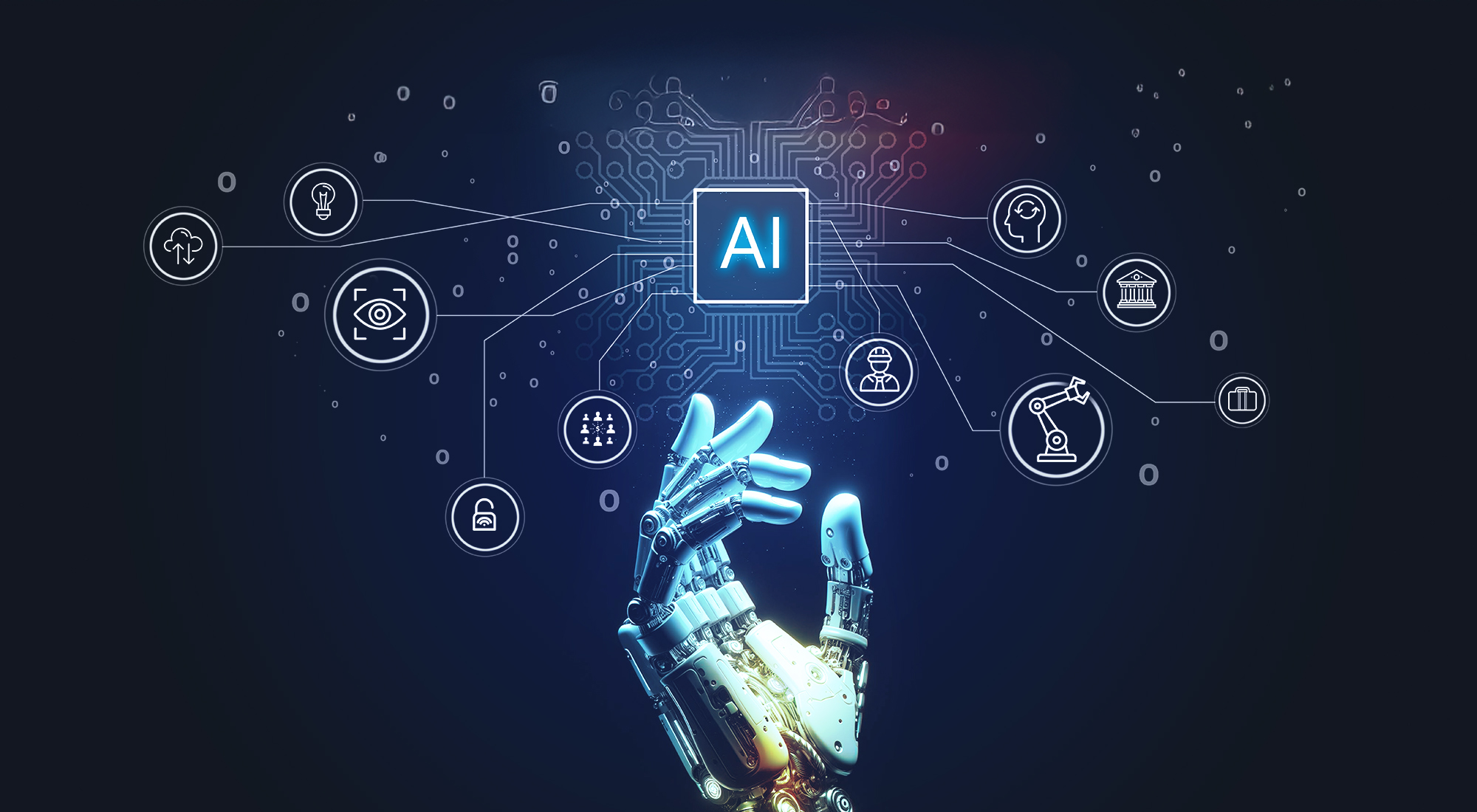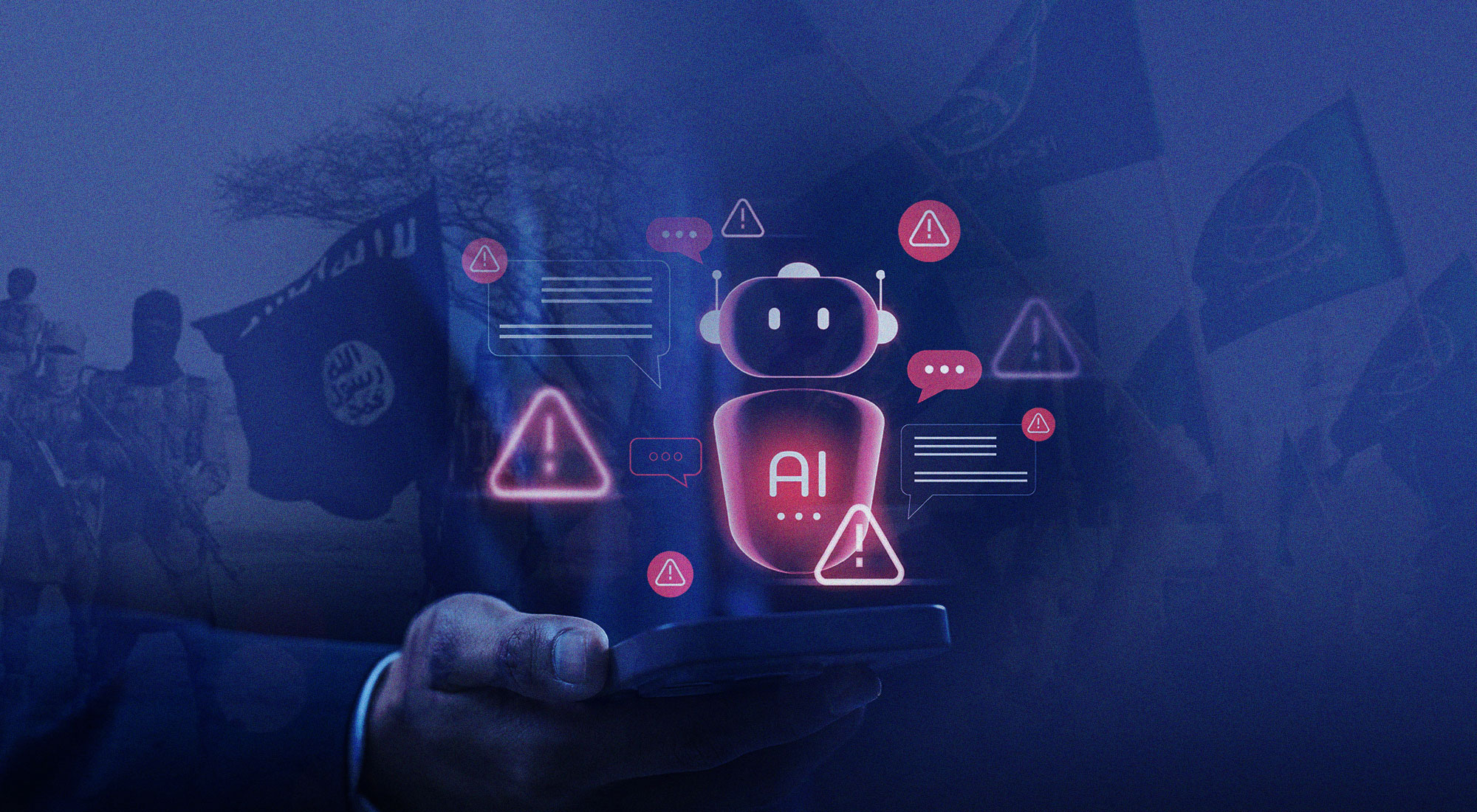Have you ever considered the possibility that our gadgets could communicate with each other on our behalf, eliminating the need for us to interact directly?
Have you ever thought of the possibility of booking an appointment to see a doctor, only to find that the specialist is an AI doctor[1] who diagnoses the illness and prescribes medication?
Have you ever imagined the probability that cars on the streets could be programmed to decide which side of the road to take or which other vehicle they might collide with in the event of an unexpected factor?
All these scenarios might sound out of this world at this very moment. But who knows? They might already be under study in one of the technology laboratories somewhere on our planet, where tests are being conducted on some of the most advanced tools the human brain has created as offshoots of Artificial Intelligence (AI).
The AI field has grown both vertically and horizontally over the past years. While its engineers naturally need to have substantial knowledge in computer science, ordinary individuals can easily use AI tools without any technical skills—a fact that has helped spread a wide range of AI tools among different people, across various ages, education levels, and backgrounds, in different regions including the Arab world.
To the vast majority, AI and its tools represent a remarkable achievement for humanity. It offers significant assistance in research, minimizes the time required to complete tasks, opens new horizons, and paves the way for further human advancement. For example, consider the short time an AI tool takes to categorize vast amounts of information from public records to write an in-depth article on topics such as real estate or traffic fines. It can design a poster for a marketing campaign in just a few seconds. Today, AI has demonstrated its ability to accurately read certain medical imaging scans and detect diseases.[2] [3]
However, the picture is not entirely rosy or complete. More needs to be done. These successes in using AI should not distract humanity from the necessity of establishing rules and regulations governing the use of technology. Technological advancement can also pose risks to humanity, its security, creativity, and future—such as when a hacker uses AI tools to alter voice recordings and deceive others.
Both the positive and negative aspects of using AI are already being experienced and shared. In what sounds like a story from the Sherlock Holmes series but was, in fact, an AI-powered scam. Indian billionaire Sunil Bharti Mittal recounted a shocking personal experience during a conference held in India in October this year. One of his senior finance executives received a call from “him,” directing the staff member to make a large money transfer. Fortunately, the vigilant staffer checked with Mittal before proceeding, and the transfer was stopped. Mittal himself was “stunned” after hearing the recording, as the hoaxer had mimicked his voice so convincingly.[4]
Meanwhile, AI is being increasingly adopted by businesses. Nearly two-thirds of businesses regularly integrated AI tools into their operations in 2024 for various tasks.[5] Noaman Sayed, co-founder of DeenSquare.com, an e-commerce business, uses AI for planning stock supplies and automating repetitive tasks. “Wherever there is repetitive work that can be automated, we can get better efficiency and add more value,” he said. However, he emphasizes that not all AI outcomes are accepted without human intervention—at least at the current stage.
Echoing an existing optimistic perspective shared by many, Sayed believes it is in humanity’s best interest to accept AI because “things will continue to move on,” and AI will persist whether humans are ready to live with it or not—whether they choose to embrace it or reject it, apply it or detach from it. “Now, it is up to us (humans), whether to embrace the change or just be watchers and do nothing. But it will be much more beneficial if we have a benchmark to start using it for positive reasons, because like all (other) tools, it can be used for both good and bad,” he said.
One of the concerns raised after the introduction of AI technology in various fields is the fear of AI replacing humans in many jobs. While it is clear that some roles will be filled by “computers”—similar to what happened in many customer service businesses—new opportunities will also emerge. This pattern has been observed before: when television was introduced after radio, when the Internet came into existence, and when social media was launched. Each brought new opportunities while rendering some previous job roles obsolete.
Big Winners
Among the fields where AI has the potential to be a transformational factor is the healthcare sector. Reports highlight how AI can offer better diagnoses, reduce errors, enable more efficient communication, and deliver precise, targeted treatments. Introducing technology in this field is expected to have a positive impact, creating opportunities ranging from smart stethoscopes and robotic surgeons to AI-powered medical consultations with human-like avatars. These advancements could save thousands of lives every year.[6]
However, issues with some AI models used in healthcare are already being recognized. Some tools have demonstrated “hallucination”[7]—a term used to describe misleading or erroneous results generated by AI models. IT experts believe hallucination can be mitigated through measures such as comprehensive training, ensuring data integrity, implementing quality assurance, continuous monitoring, and robust retraining processes.[8]
The impact of AI has been less promising in other fields, including the media sector, where AI is becoming increasingly accessible and important, particularly in investigative journalism. For example, AI tools like the ChatGPT chatbot have faced legal challenges, with lawsuits filed for allegedly using media articles to train the model without permission. So far, there have been two such cases, one in the United States and another in Canada.
Recently, five major Canadian media outlets, including the Canadian Broadcasting Corporation (CBC), filed a joint lawsuit in the Ontario Superior Court of Justice on November 29, 2024, accusing OpenAI, the parent company of ChatGPT, of “capitalizing and profiting from the use of this content without obtaining permission or compensating content owners.” In a joint statement, the five companies claimed that OpenAI regularly breaches copyright by using Canadian media content to train its products, including ChatGPT.[9] [10]
This is the second lawsuit of its kind against the AI company. The first was filed by The New York Times in 2023 against both OpenAI and Microsoft, accusing them of copyright infringement. Both companies denied the allegations.
Cases of this nature have fueled calls to regulate the use of AI, especially as AI tools become increasingly accessible to users, regardless of their IT expertise—whether relaxing on couches at home or sitting behind desks at work. Proposed regulations for AI are expected to address liability, credibility, testability, and traceability of its outcomes.[11]
The Very First Beginning
The concept of AI is not new, and research into the ability of machines to think like humans dates back to the 1950s. During that time, English mathematician and computer science pioneer Alan Turing wrote a paper titled “Computing Machinery and Intelligence” in which he posed the question, “Can machines think?” One of the lines in his paper reads: “We can see only a short distance ahead, but we can see plenty there that needs to be done.”[12] He proposed a test, later known as the “Turing Test” or the “Imitation Game,” to evaluate a machine’s ability to think.[13]
Turing, a Cambridge mathematics alumnus, was recruited by British intelligence agency MI6 to crack Germany’s so-called unbreakable code, Enigma, during World War II. His work was instrumental in the Allied victory.
Two years later, American computer scientist John McCarthy coined the term “Artificial Intelligence” when he used it for a field project aimed at exploring “how to make machines use language, form abstractions and concepts, solve kinds of problems now reserved for humans, and improve themselves.”[14] McCarthy is often described as the father of AI.
However, AI’s “tipping point,”[15] according to many, came in late 2022 with the release of ChatGPT, an AI-powered chatbot tool. Within the first three days, three million people logged in to use the tool.[16] ChatGPT’s “sibling,” DALL-E, another AI tool released in the same year, further marked a key development by enabling users to create images from text descriptions.[17]
Many were amazed by ChatGPT’s ability to engage in human-like conversations. It could answer questions, explain scientific concepts, write literature, including children’s books, and even craft functional lines of computer code.[18] ChatGPT also successfully passed tests for certain positions with salaries in the tens of thousands of U.S. dollars, including a Google coding interview for level 3 engineers, a coder role at Amazon, and a communication consultant[19] position. Additionally, it passed a French medical exam equivalent to the European Board of Ophthalmology certification.[20]
After ChatGPT’s abilities surprised the world, many higher education institutions worldwide, including in the UAE, reverted to paper-based exams instead of computer-based ones.[21] Interestingly, another AI tool, Turnitin, designed to detect plagiarism, suggests that cheating is not as widespread as many believe. According to Turnitin, only 1 in 10 assignments was detected as using AI, and 3 assignments were generated mostly by AI.[22]
In just a few months, reports about AI’s capabilities have left many feeling uneasy. The rapid spread of AI technology, like wildfire, has introduced a variety of tools alongside ChatGPT. Some produce pictures and videos, while others can analyze medical reports or legal documents, to name a few.
However, reassuring for those worried about AI’s impact on our future is that all answers provided by ChatGPT—GPT stands for Generative Pre-Trained Transformer—are still based on the vast troves of information previously fed into the system. In other words, AI cannot think, analyze, or create independently. It still requires human intervention. At least, for now.
Thanks to the launch of ChatGPT, many became interested in AI, according to Sam Altman, CEO of OpenAI, the parent company of the chatbot. Altman has long emphasized the importance of regulating AI, but most of his calls went unheard until ChatGPT came into existence.[23]
Quoting Brian Christian, author of “The Alignment Problem,”[24] The New York Times wrote in early 2024 that the issue with AI lies in the “alignment” of AI behavior with human values. Christian explained in his book: “As machine-learning systems grow not just increasingly pervasive but increasingly powerful, we will find ourselves more and more often in the position of the ‘sorcerer’s apprentice’: we conjure a force, autonomous but totally compliant, give it a set of instructions, then scramble like mad to stop it once we realize our instructions are imprecise or incomplete—lest we get, in some clever, horrible way, precisely what we asked for.”[25]
Today, governments are working to establish regulations for the use of AI. Major countries and blocs, such as the European Union (EU) and China,[26] have passed laws to impose guardrails on technology, requiring proper approvals before producing any AI tool or service. In the U.S., many cities have already enacted laws limiting the use of AI in certain areas, such as investigations and hiring.[27]
Australia recently announced a ban on the use of social media platforms for children under the age of 16, becoming the first country to take such a step and setting a benchmark for jurisdictions worldwide.[28] UNESCO previously recommended setting the minimum age for children using AI in [29]classrooms at 13.
Most of the rules in place worldwide today are more of a “framework” for AI use. Control, for the most part, comes at local levels, such as within companies or universities, where rules are set on what is acceptable and what is not. The Arab Gulf region is no different. Regulating the use of technology is a “momentous” task, as the technology evolves at such a fast pace that it is challenging to keep up.
Shaz Khan, an IT specialist and consultant in AI tools, put it simply: “I think all governments around the world are playing catch-up with advanced technology like AI in order to understand what the right framework and regulations are to manage it successfully… We are reactive, not proactive. We can’t be.”
In the Gulf region, both the UAE and Saudi Arabia have announced their commitment to giving AI special attention and attracting both foreign and local investments in the field. In 2017, the UAE became the first nation in the world to appoint a Minister of State for AI, the same year it announced its AI strategy. This strategy aims to enhance government performance across various levels and integrate small digital systems to provide quick and efficient solutions. It covers a wide range of sectors, including transport, healthcare, renewable energy, water, education, traffic, and the environment.
The UAE and the rest of the Arab Gulf countries have near-total internet penetration—close to 100% of the population uses the internet.[30] This fact, combined with their commitment to embracing AI technology and increasing the contribution of the digital economy to GDP,[31] has earned them widespread praise.
The Arab Gulf countries, rich in oil and gas resources, announced plans years ago to diversify their economies and reduce their dependence on fossil fuel revenues. Since hydrocarbon resources will not last forever, focusing on technology as a means of creating economic value “makes a lot of sense.”[32]
AI Training Courses and Growing Attention
Meanwhile, various organizations, institutions, and private businesses are offering training in AI and its tools. Workshops, seminars, lectures, and meetings are being organized more frequently, both physically and virtually. Some educational institutions are focusing on AI by providing students with opportunities to engage with specialists in both IT and AI.
Media organizations in the Arab Gulf region and beyond are at the forefront of these efforts, offering AI courses to their members. At the start of a training course, one senior official in a pan-Arab media organization remarked, “We will regret entering the field a little late. But we have entered it. That is a good thing.”
Why the regret? It is not entirely clear. However, it is known that several newsrooms in other parts of the world have already started embracing AI in their work, dedicating special journalists or teams to integrate AI into their operations.
How AI will affect Arab media in the medium to long term is unclear. The direction many sectors will take in the AI era remains uncertain. Will it mirror the impact of the internet’s emergence? Or will it be more akin to the industrial revolution and its transformative effect on societies? What it means for humanity’s future is yet to be seen.
For people like Khan, no one truly knows. “Literally, we are still in the very early days—day one of a very long journey,” he said. Hovhaness Avoyan, an Armenian-American former professor of AI and founder of the Picsart editing application for pictures and videos, added: “AI won’t steal your job, but people using it may.”[33]
[1] “The AI Doctor Will See You…Eventually,” The Economist, March 27, 2024, https://www.economist.com/leaders/2024/03/27/the-ai-doctor-will-see-youeventually.
[2] “The Doctors Pioneering the Use of AI to Improve Outcomes for Patients,” Financial Times, https://www.ft.com/content/2fd63023-ec0a-421c-9abb-b6c8000b3b51.
[3] Idem.
[4] “Dubai: Billionaire Nearly Lost Huge Amount of Money After Staff Gets Call from ‘AI Clone,'” Khaleej Times, https://www.khaleejtimes.com/uae/dubai-billionaire-nearly-lost-huge-amount-of-money-after-staff-gets-call-from-ai-clone.
[5] “The State of AI in Early 2024: Gen AI Adoption Spikes and Starts to Generate Value,” McKinsey, https://www.mckinsey.com/capabilities/quantumblack/our-insights/the-state-of-ai.
[6] “The AI Doctor Will See You…Eventually,” The Economist, March 27, 2024, https://www.economist.com/leaders/2024/03/27/the-ai-doctor-will-see-youeventually.
[7] “Researchers Say an AI-Powered Transcription Tool Used in Hospitals Invents Things No One Ever Said,” Associated Press, https://apnews.com/article/ai-artificial-intelligence-health-business-90020cdf5fa16c79ca2e5b6c4c9bbb14.
[8] “Preventive Medicine for Hallucinations in Generative AI,” Circana Intelligence, https://www.circana.com/intelligence/blog/2024/ai-hallucinations/.
[9] “Major Canadian News Outlets Sue OpenAI in New Copyright Case,” The New York Times, November 29, 2024, https://www.nytimes.com/2024/11/29/world/canada/canada-openai-lawsuit-copyright.html.
[10] “Media Outlets, Including CBC, Sue ChatGPT Creator,” CBC News, https://www.cbc.ca/news/business/openai-canadian-lawsuit-1.7396940.
[11] “Why Regulating AI Can Be Surprisingly Straightforward, When Teamed with Eternal Vigilance,” World Economic Forum, https://www.weforum.org/stories/2024/05/why-regulating-ai-can-be-surprisingly-straightforward-providing-you-have-eternal-vigilance/.
[12] “Fake Quotes,” Dermot Turing Official Blog, July 30, 2019, https://dermotturing.com/2019/07/30/fake-quotes/.
[13] “The Birth of Artificial Intelligence (AI) Research,” Lawrence Livermore National Laboratory, https://st.llnl.gov/news/look-back/birth-artificial-intelligence-ai-research.
[14] Ibid.
[15] “Is the Arab World Ready for the Uncertain Age of AI-Powered Web Tools?” Arab News, httpswww.arabnews.com/node/2265026/middle-east.
[16] “Explained: What is ChatGPT?” World Economic Forum, December 2022, https://www.weforum.org/stories/2022/12/chatgpt-ai-bot-intelligent-conversation/.
[17] “These Were the Biggest AI Developments in 2022. Now We Must Decide How to Use Them,” World Economic Forum, January 2023, https://www.weforum.org/stories/2023/01/davos23-biggest-ai-developments-how-to-use-them/.
[18] “Is the Arab World Ready for the Uncertain Age of AI-Powered Web Tools?” Arab News, https://www.arabnews.com/node/2265026/middle-east.
[19] “3 High-Paying Jobs Where ChatGPT Has Successfully Interviewed, and How Much They Pay,” Mashable Middle East, https://me.mashable.com/tech/24792/3-high-paying-jobs-where-chatgpt-has-successfully-interviewed-and-how-much-they-pay.
[20] “Success of ChatGPT, an AI Language Model, in Taking the French Language Version of the European Board of Ophthalmology Examination: A Novel Approach to Medical Knowledge Assessment,” PubMed, https://pubmed.ncbi.nlm.nih.gov/37537126/.
[21] “Australian Universities to Return to ‘Pen and Paper’ Exams After Students Caught Using AI to Write Essays,” The Guardian, January 10, 2023, https://www.theguardian.com/australia-news/2023/jan/10/universities-to-return-to-pen-and-paper-exams-after-students-caught-using-ai-to-write-essays.
[22] “New Data Reveal How Many Students Are Using AI to Cheat,” Education Week, April 2024, https://www.edweek.org/technology/new-data-reveal-how-many-students-are-using-ai-to-cheat/2024/04.
[23] “Everybody Is Talking About A.I. What the Heck Is It, Anyway?” The New York Times, January 31, 2024, https://www.nytimes.com/2024/01/31/books/review/artificial-intelligence-best-books.html.
[24] Ibid.
[25] “The Alignment Problem: Important Quotes,” SuperSummary, https://www.supersummary.com/the-alignment-problem/important-quotes/.
[26] “Artificial Intelligence Act,” https://artificialintelligenceact.eu/.
[27] “Regulating AI? How US, EU & China Are Going About It,” Bloomberg, March 13, 2024, https://www.bloomberg.com/news/articles/2024-03-13/regulate-ai-how-us-eu-and-china-are-going-about-it.
[28] “Australia Passes Social Media Ban for Children Under 16,” Reuters, November 28, 2024, https://www.reuters.com/technology/australia-passes-social-media-ban-children-under-16-2024-11-28/.
[29] “Use of AI in Education, Deciding on the Future We Want,” UNESCO, https://www.unesco.org/en/articles/use-ai-education-deciding-future-we-want.
[30] “Individuals Using the Internet (% of Population) – United Arab Emirates,” The World Bank, https://data.worldbank.org/indicator/IT.NET.USER.ZS?locations=AE.
[31] “Digital Economy in the UAE,” U.AE, https://u.ae/en/about-the-uae/economy/digital-economy#:~:text=Launched%20in%20April%202022%2C%20the,per%20cent%20within%2010%20years.
[32] Interview with Shaz Khan, a Dubai-Based AI Consultant.
[33] “AI won’t steal your job, but people using it may,” https://www.bbc.com/news/av/business-68283847.







